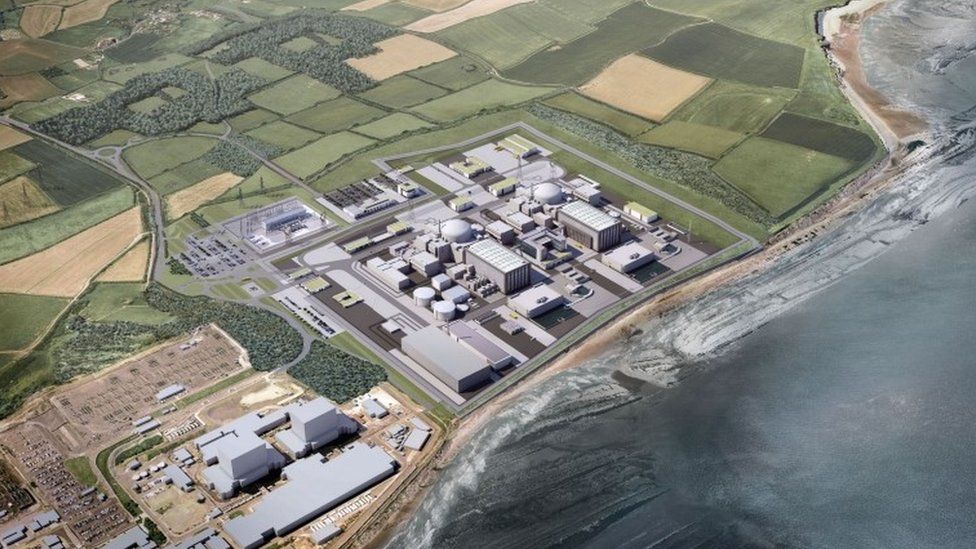What now for Hinkley Point?
- Published

The deal to build a new nuclear power plant at Hinkley Point in Somerset was on the verge of being signed when the UK government announced it wanted to review the details. So where does this delay leave the project?
Why the delay?
With a new Prime Minister and new cabinet, the Government may have wanted to re-assess the £18bn cost. At that price, it would be the most expensive nuclear power plant ever built. Some say the cost could ultimately be much higher.
It may also want to reassess the price it's agreed to pay to EDF for the electricity the power station would produce. It's currently guaranteed a price of £92.50 per megawatt hour. That's about double the current price and could mean higher energy bills for consumers.
But wholesale prices are volatile and will fluctuate. So it's an educated guess as to where prices could be by the time the new power station opens. If they are higher, we'll be getting a bargain, but if they're lower we'll have to make up the difference through higher bills and pay more than we would otherwise.
Is China the issue? The Chinese have a 30.5% stake in the project and there may be questions for the new government about their involvement in Britain's energy future.
What is the UK government doing now?
The contracts were due to be signed today but the government says it "will carefully consider" the plan before backing it and there'll be a decision in "early autumn".
At Hinkley Point today they're quietly dismantling the VIP facilities that were set up to welcome EDF's bosses and members of the Chinese consortium that was financing a third of the cost. They will now return home.
Where does this leave EDF?
EDF is still committed to building Hinkley Point C.
The diggers and other heavy machinery on the site at Hinkley are still operating as normal, preparing the ground and foundations.
EDF also has the backing of the French government which holds a significant stake in it. But questions over the company's financial stability remain and two senior executives have now resigned from EDF over the escalating cost that some fear could bankrupt it if there were to be complications or delays.
What happens to all the workers who were due to start?
It's thought the project would provide work for up to 25,000 people both in the construction and operation of the power station and also in the surrounding area and supply chain. I spoke to one B&B owner who had hoped the project would mean a big influx of visitors to the area for the next ten years.
He's now struggling to make ends meet after a series of delays and setbacks. That's a familiar tale right around this area.
Where does it leave the UK's energy strategy?
Hinkley Point C would have provided 7% of the UK's electricity by 2025 replacing the existing Hinkley Point B reactor that will be decommissioned in 2023. If the government decides not to go proceed with the plans it will need to look at alternative sources of energy to secure the UK's energy supply in future.
Critics of nuclear power say the falling cost of renewable technology such as wind and solar makes them much better solutions to our energy needs.
- Published15 September 2016
- Published28 July 2016